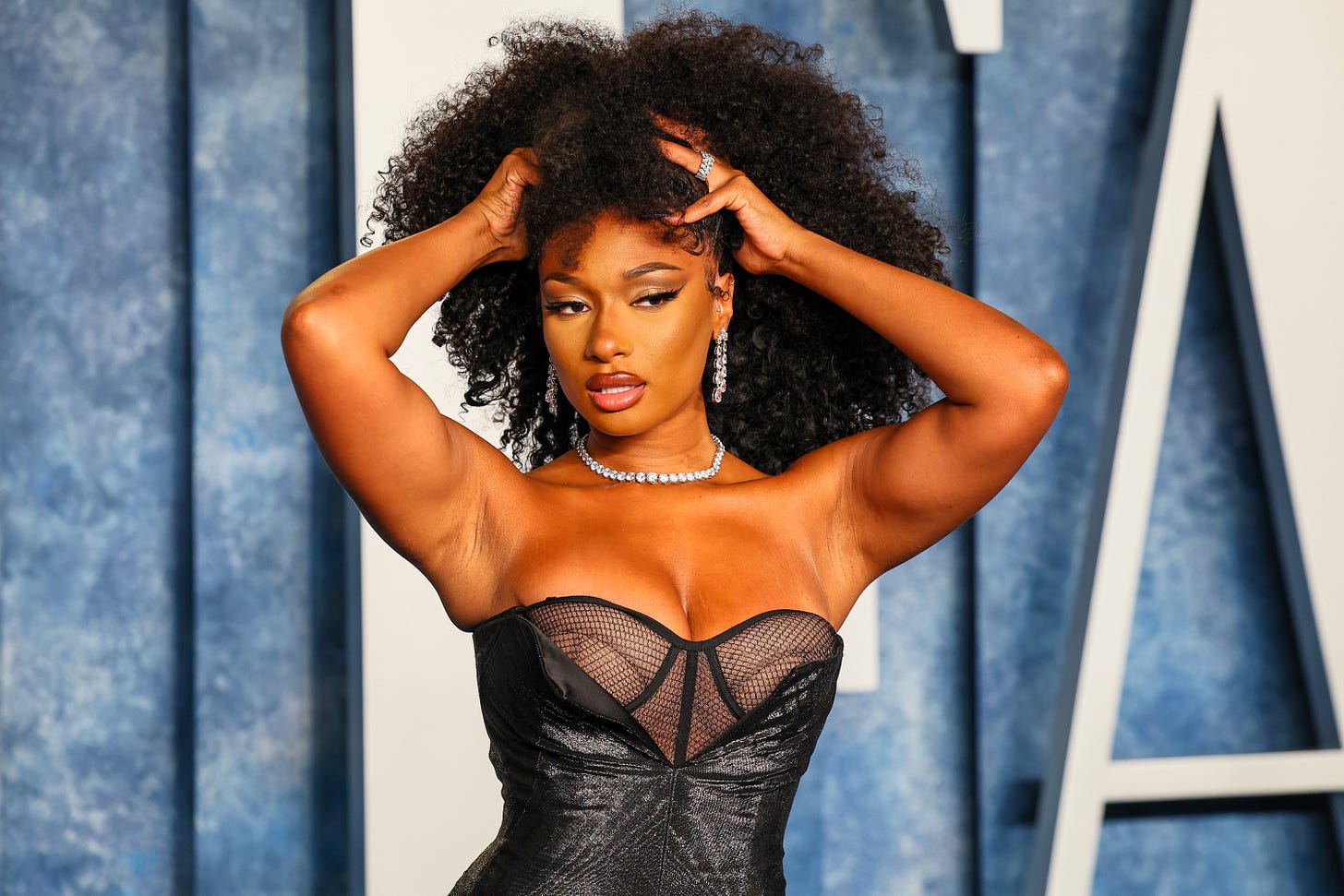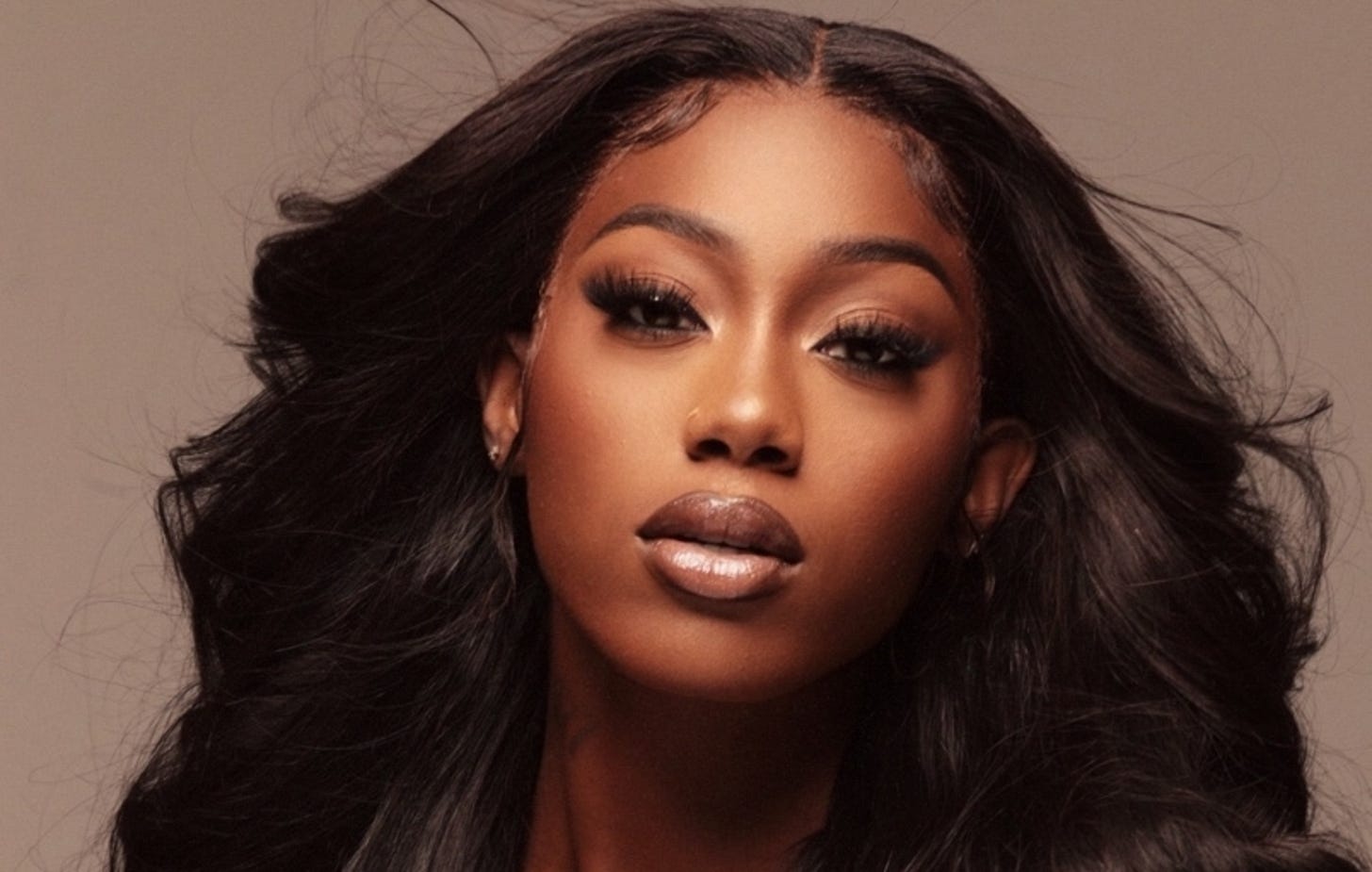colourism in the female rap industry
why do lightskin female rappers continuously get more attention than the ones a shade darker than them.
When looking at the current rap charts, we clearly see that women have set their place, and rightfully so. But if you dig deeper, you’ll see that a majority of the women on these lists are light-skinned. It’s almost as if your success is tied to the colour of your skin (shocking!). Darker-skinned female rappers have been overlooked and under appreciated for decades. The music industry is almost programming us to believe that the lighter your skin colour, the more successful you will be. And honestly, this narrative is highly damaging to those darker-skinned artists, as they see that their voices are not being heard.
And rap/hip-hop aren’t the only music genres that not only face colourism or racist behaviours, it’s in every genre. In rock for example, where it is almost impossible to deny the racist past of rock artists who stole their music from Black artists. Margo Jefferson’s Ripping Off Black Music discusses this issue more if you’re interested, definitely read this article.
Colourism and misogyny:
On top of the misogyny women in this industry have to go through, they must endure racism from everyone around them. Colourism in this industry isn’t new, but it’s being discussed more often as every one notices this issue. Some of the best dark-skinned rappers of the past five years include Bree Runway, Little Simz, Monaleo, Doechii and Flo Milli, but guess what? They don’t get half of the recognition as opposed to lighter-skinned rappers. This isn’t to say that light skin rappers like Latto, Doja Cat, or Coi Leray aren’t talented, but would they get the same attention if they were darker?
This whole mindset that being lighter meant you were better has been around since the days of slavery in the US. Slave owners would often have children with enslaved African Americans, and the children would be called “mullato” even though they were still enslaved, they were viewed in higher regard than darker skin slaves. The oppressors have created this idea that the lighter you are, the better, and now in the music industry, this message has been reinforcing this idea. Male dark-skinned rappers like A$AP Rocky have made extremely colourist and anti-black comments, a reminder that he’s in a relationship with Rihanna, an advocate for black women. He said that black women are too “sensitive,” which is why black men prefer white women over them. Sure, this could be an issue of self-hatred where dark-skinned black men bash women with the same skin tone as their own mothers, but this narrative has been pushed so many times whilst nothing is being done to stop it.
The case of Megan Thee Stallion:
Megan Thee Stallion is one of the most mistreated women in contemporary rap and hip-hop culture. She is one of the most talented rappers of the past few years, and she deserves every bit of attention she’s received, but have you seen how she’s been treated? How many men (especially Black) have insulted her for literally being tall? First of all, Megan isn’t even the darkest of the rap girls, but how she’s treated in the industry is disgusting.
The masculinization of black women is nothing new, take a look at Serena Williams and how she’s accused of being too “manly”, but many people are still oblivious to it. Megan has been a victim of rumours such as ones accusing her of being transgender and only believing that she is a woman when she “gives birth.” The simple explanation is that many men are intimidated by strong women, and that some women themselves will jump at any chance to humiliate a woman (which stems from competition and low self-esteem). The sad part is that this more than often hurts black women the most. They call us men and aggressive because it’s an easy insult that continuously makes them feel superior.
Lightskin vs Darkskin debate:
Other dark-skinned rappers like Flo Milli, Doechii and Bree Runaway have been ignored and underappreciated for years. Of course, some have great hits out, but these aren’t charting as well as the light-skinned girls, and I promise you it has nothing to do with their talent, PR and management team or their rhymes. It is because of their skin colour.
Rising Bronx rapper Ice Spice has been playing in everyone’s heads, and sure, her music is fun and catchy but come on... Ice Spice makes fun music for the girls, which is okay; I love her songs and how unproblematic she is, but the way society treats light skins compared to darker-skinned girls is evident. Due to the beauty standards of today’s society she already is the pinnacle of desirability, but she is sexualised to another level where men especially, objectify her and pass it off as a “joke.” Well your joke was weird, and it was never funny in the first place. A lot of men only gave her the time of day because she fits the girl they saw in their dreams.
If we compare Ice Spice to Flo Milli who also gained fame through Tik Tok, there’s a clear difference in how their careers have gone. They’re essentially parallel in terms of their catchy music and unproblematic personalities, but what sets them apart is their skin tone. So it begs the question of why is it that these women who are so similar, are almost nothing alike in the eyes of the music industry.
Dark and brown-skinned women are scorned, seen as masculine, etc., whilst light-skin girls—no matter what they look like—are always seen as more beautiful, more feminine, etc. Even if they behave similarly, the darker-skinned women will be seen as more “ghetto.” For example, Glorilla, a rising rapper who’s relatively brown-skinned and gets called “ghetto”, “rachet”, and “loud” for shaking her ass but let a light-skin do it, and most of the time, she’ll be hyped up. And on top of that, she also often gets masculinised on social media for not having the male-preferred curvy body that, god forbid, not every woman on Earth has.
conclusion
It’s clear that to be successful in the music industry these days, as a dark skin woman, you need to be talented and pretty, but as a light-skin, you’ll get along with just pretty. Is this evidence that our society and the music industry is driven by lust and sexualising women? Maybe. It’s a fact that the music industry wants women who are “attractive” in their eyes because they’ll bring them more profit. But this will only ever be beneficial for the men who are exploiting them. A rising number of female rappers are coming out all over the internet, bringing traction to this topic, but it truly feels like a rap scene without any colourism would be too good to be true.
Watch this on the colourism in R&B:





